DC’s Trans Rights Festival Liberation Weekend Brought An Urgent DIY Spirit To The Fore
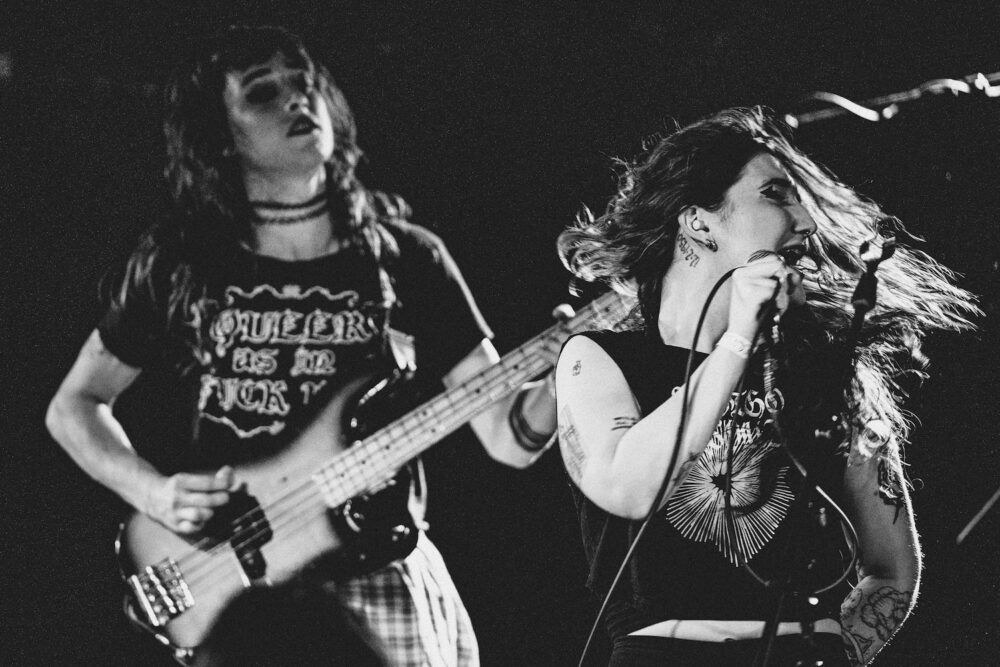
Pretty Bitter (Murphy Gerrasch / @bardicroots)
Some of my best memories from my years going to shows in Washington, DC were made on the dancefloors of Black Cat and DC9 Nightclub. Last weekend, these DC indie music strongholds, located a few blocks from each other in the Shaw neighborhood, were home to more than their usual buzzy touring bands and scrappy local punk outfits. They hosted Liberation Weekend, a two-day festival dreamt up by DC punks Ekko Astral and a team of musicians and organizers. Billed as “two days of music & arts for trans liberty,” the fest’s net proceeds are going to Gender Liberation Movement to help fund future rallies and direct action.
From the beginning, Ekko set out to make Liberation Weekend something different. For those who have been paying attention, the need is obvious. The festival arrives amidst a national rollback in trans healthcare access and increasingly hostile rhetoric from a right wing whose stated goal is to force transness from public life entirely. Just last month, the Republicans passed a budget bill through the House that included language that would ban gender-affirming care for all trans people on Medicaid or ACA health plans.
Rather than treating this threat as a canary in the coal mine, the queer community’s supposed allies have all too often been nowhere to be found. The Democratic Party responded to their 2024 losses with hand-wringing about “wokeness” alienating moderates and a notable retrenchment in their support for trans rights. Similarly, massive brands have quietly pulled back from Pride events this year, abandoning even the thin veneer of passive allyship that corporate Pride offered. It is increasingly clear that meeting the moment requires new movements. For Ekko Astral, the first step is Liberation Weekend.
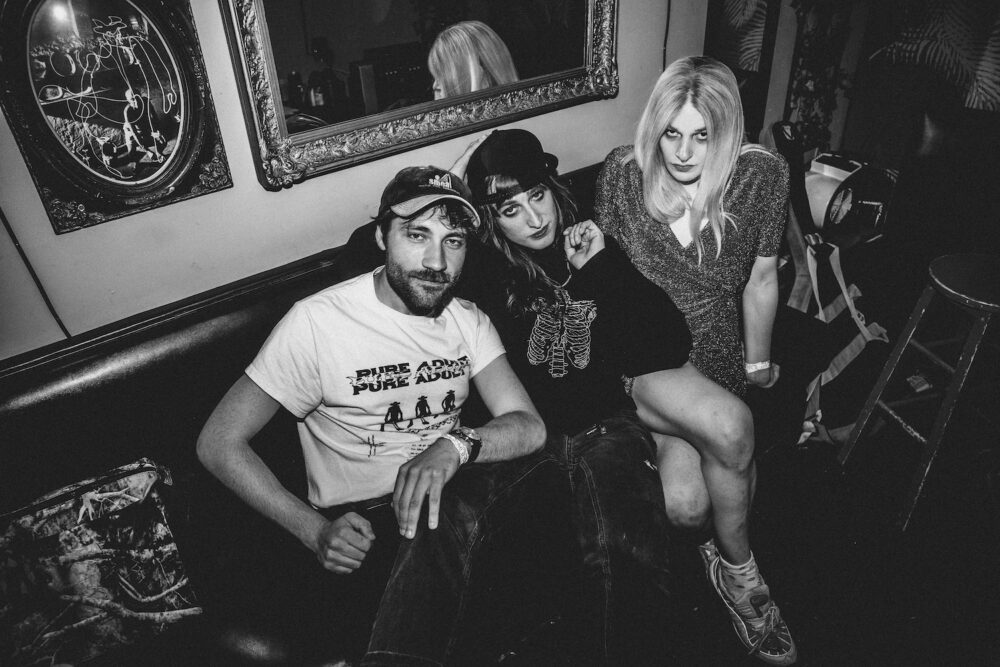
Ekko Astral (Murphy Gerrasch / @bardicroots)
In a phone call prior to the festival, Ekko Astral vocalist Jael Holzman explained the festival’s genesis and vision. She had just finished writing a story for Rolling Stone about the threat the Trump administration represents for trans healthcare and how she was skeptical that Democrats will do enough to stand in the way. She was introduced to a Gender Liberation Movement organizer as they were on their way to occupy bathrooms in Congress in protest of the bathroom ban on the Capitol grounds. “Upon being introduced to [Gender Liberation Movement], their initial thought was, ‘Hey, do you wanna cover this?’ because I’m a journalist by trade, to which I said, no, actually, I would like to help you,” Holzman says.
For Holzman and the rest of Ekko Astral, the activism the weekend supports is an intrinsic part of their music and scene. As they frame it, Liberation Weekend is an attempt to build outside of the world of for-profit Pride events and bloated, costly music festivals. The first principle for the weekend was always putting money directly into the hands of people fighting for trans rights. Rather than leaning on a one-dollar-donation-per-ticket-sold structure, the band were adamant that the entire weekend be non-profit.
“I’m able to safely say that every single cent you spend goes directly into the pockets of people who are going to advocate for your rights,” Holzman says. “And that is the kind of model, the kind of community-driven model that we should be making. We shouldn’t be having these, greenwash, stain wash ticket deals. No. Enough of that. We are living in a different era.”
As Ekko’s drummer Miri Tyler noted, “This isn’t like a music show for us. It’s an action in my mind. We’re proving that we have a community of queer trans people and allies who are going to come and spend money and knowing that that money is going to go to the people who need it the most and to the resistance that is going to meet the moment right now.”
Liberation Weekend was the kind of event that embodies the blur between the personal and the political. The lineup was full of killer bands from the national DIY and indie scene but was also heavily curated to elevate bands with trans members and those who unabashedly champion trans issues. The weekend’s shows were divided between the larger Black Cat room and the smaller DC9 club, which hosted the afterparty shows and local showcase.
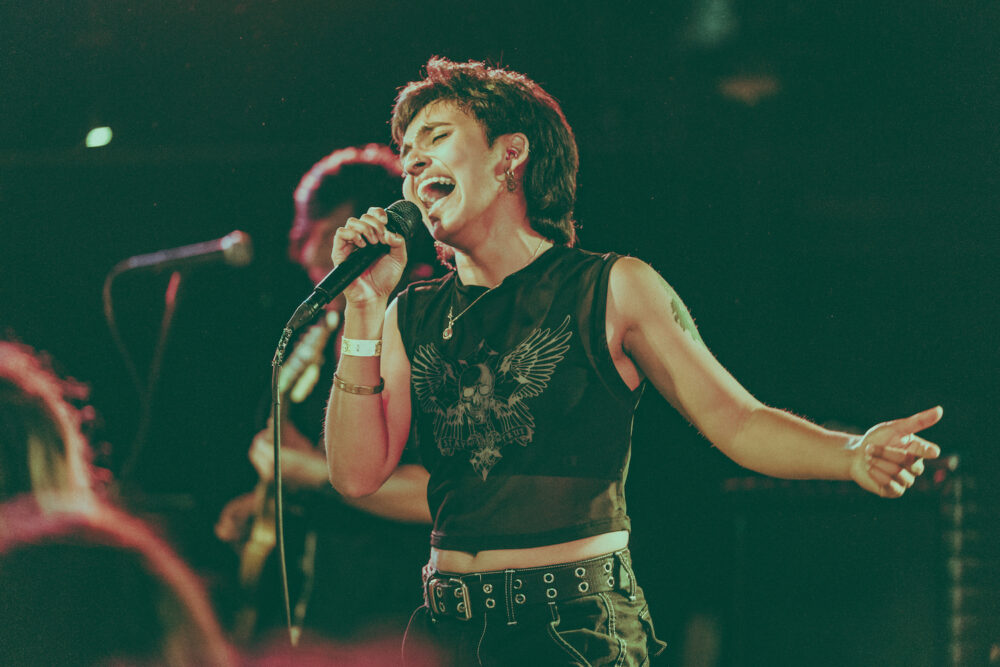
Pinkshift (Murphy Gerrasch / @bardicroots)
Black Cat’s headliners were the biggest draws, bringing out established names in indie, punk, and emo. On Friday, the Ophelias, Home Is Where, and Pinkshift topped the bill, while Saturday leaned on indie rock vets and live heavy-hitters like Downtown Boys, Ted Leo, and Speedy Ortiz. The Black Cat shows also closed out with a Red Hot-sponsored showcase from Bartees Strange, Asher White, and L’Rain, all of whom contributed to Red Hot’s ambitious TRANSA benefit album last year.
Meanwhile, there was plenty of representation for DC’s thriving DIY scene, with Pretty Bitter playing on Friday and a full local showcase for DC bands at DC9 on Saturday. DC9 also hosted a late-night set from New York indie pop duo Um, Jennifer? on Friday and one of Ekko Astral’s guest-filled mascara mosh pits on Saturday.
I arrived early to Black Cat on Friday, driving over as soon as I clocked out from work for the weekend. For the first few minutes, I mingled in the sparse crowd, making small talk with people who came from out of town to catch the headliners. Gradually, people filtered in and I began to recognize faces in the crowd — strangers I’d seen at past Ekko Astral shows or internet mutuals I had been following but never met in person. The festival quickly began to take on the comfortable hometown feel I had known from dozens of shows at Black Cat, filling up with the usual mix of queer punk kids and hip indie rock types.
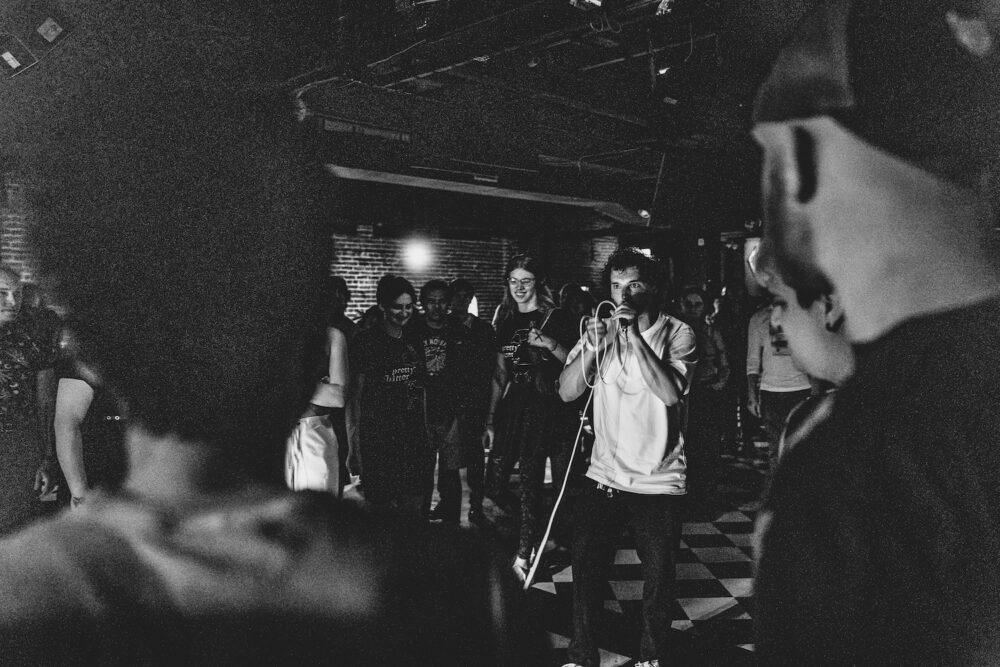
Pop Music Fever Dream (Murphy Gerrasch / @bardicroots)
The night’s shows were explosive from the jump. The weekend’s heaviest bands were mostly frontloaded on Friday, and the crowd was full of younger punks looking to catch Pinkshift and Home Is Where. However, the early acts were absolutely worth seeing. I hadn’t listened to Pop Music Fever Dream beforehand, but Liberation Weekend made me a quick convert. They are completely feral live. Their music straddles the blurry lines between post punk, no wave, and noise rock, centering on a precise rhythm section, atonal squalls of guitar, and alternately disaffected and unhinged spoken-word vocals. Similarly, Pretty Bitter ripped their way through their set, sounding a lot like Ratboys with an added punch. Frontperson Mel Bleker was in full rock star mode on their new single, “Thrill Eater,” holding down the center of the storm, belting out notes, and letting them stretch onward while the band went wild.
I missed part of Greg Freeman’s solo acoustic set while chatting with Tilley Komorny and Bea MacDonald from Home is Where, but what I saw only confirmed how excited I am for his record later this summer. His fragile, reedy vocals seared and cried above the twangy guitar on “Curtain,” his new single, which he then followed with a pair of new songs before closing on “Come And Change My Body” from 2022’s I Looked Out. Later, the Ophelias’ witchy folk rock offered another break from the heavier fare of the weekend. Although they got the crowd moving with “Moon Like Sour Candy,” they were also moving visual performers. Spencer Peppet dances as if mid-ritual, pulling off striking and emphatic movements across the stage amidst the dense swirls of violin and slide guitar.
If a crowd’s energy can be measured purely on how many people a band can get moving at once, Pinkshift and Home Is Where were likely the weekend’s height. I like Pinkshift’s records, but I love their live shows. More than any other band that night, their music captured the anger simmering in the room, channeling it into the band’s bitter and roiling recent singles like “Evil Eye” and “ONE NATION.” Home Is Where were effortlessly cool, with MacDonald clad in sunglasses sawing away at a harmonica and Komorny shredding at her guitar emblazoned with a Brat sticker. They mainly focused on material from their new record, Hunting Season, debuting “Milk & Diesel” and “Bike Week” live. Their set also had the weekend’s one encore: MacDonald and Komorny returned to the stage for a shortened acoustic version of “Roll Tide,” ending Friday’s Black Cat show with an off-kilter yodeling, yelping finale.
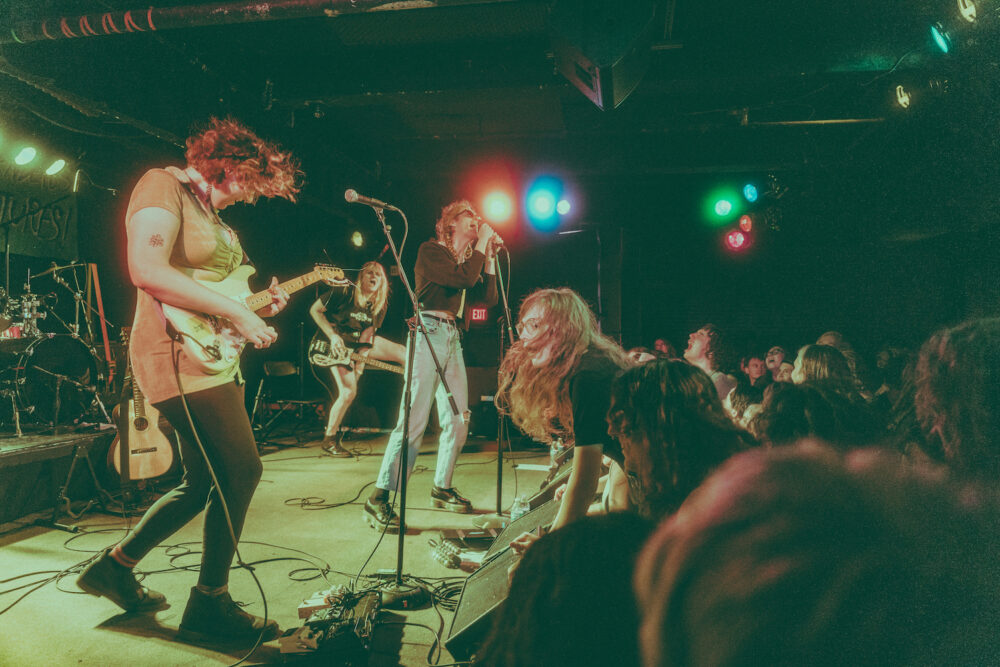
Home Is Where (Murphy Gerrasch / @bardicroots)
Shortly before Home is Where took the stage, GLM co-founder Raquel Willis took over emceeing duties to highlight GLM and the work they’ve been doing. I had the chance to talk with Willis and co-founder Eliel Cruz in the week before the festival, and they both echoed Holzman’s point about the need for new approaches. “We are focused on really shifting how we think about but also organize around gender. And that’s built off of these ideals of bodily autonomy, self-determination, the pursuit of fulfillment, and this idea of collectivism for all,” Willis explained. “We really started ramping up our efforts last year — although both Eliel and I have over a decade of organizing experience — trying to get folks to connect the dots between the attacks around abortion access, with the attacks around access to gender-affirming care…So we see ourselves as the glue between a lot of different efforts, just trying to get folks to understand that these attacks happening from fascists are happening to all of us.”
That intersectional vein felt central to both GLM’s mission and the weekend’s politics. Cruz noted the organization’s current work supporting New York’s Decrim coalition campaign to decriminalize sex work, while onstage on Friday Willis called attention to U.S. v. Skrmetti, the pending Supreme Court case putting gender-affirming care for minors in jeopardy nationally, as well as Adriana Smith, the pregnant Georgia woman who is currently medically brain-dead but being forcibly kept alive due to Georgia’s abortion ban. “That is something that’s very core for us,” Willis said. “Understanding that you can’t be talking about queer or trans or gender liberation without talking about state violence, how it occurs domestically and internationally…It’s not just about Trump. It’s not just about Republicans and conservatives. It’s actually about this larger culture that, unfortunately, is more invested in death and restriction than it is in life and abundance for everyone.”
By the time Friday’s Black Cat shows had wrapped up, the aches all over and light-headedness were starting to remind me that I had been up for work since 6 a.m. and had not eaten since 1 p.m. I walked over to DC9 for the afterparty, chugging a few cups of water and a Red Bull once I got there. However, I waited too long and missed my chance to get some food from the kitchen. Don’t be like me, folks — listen to your body!
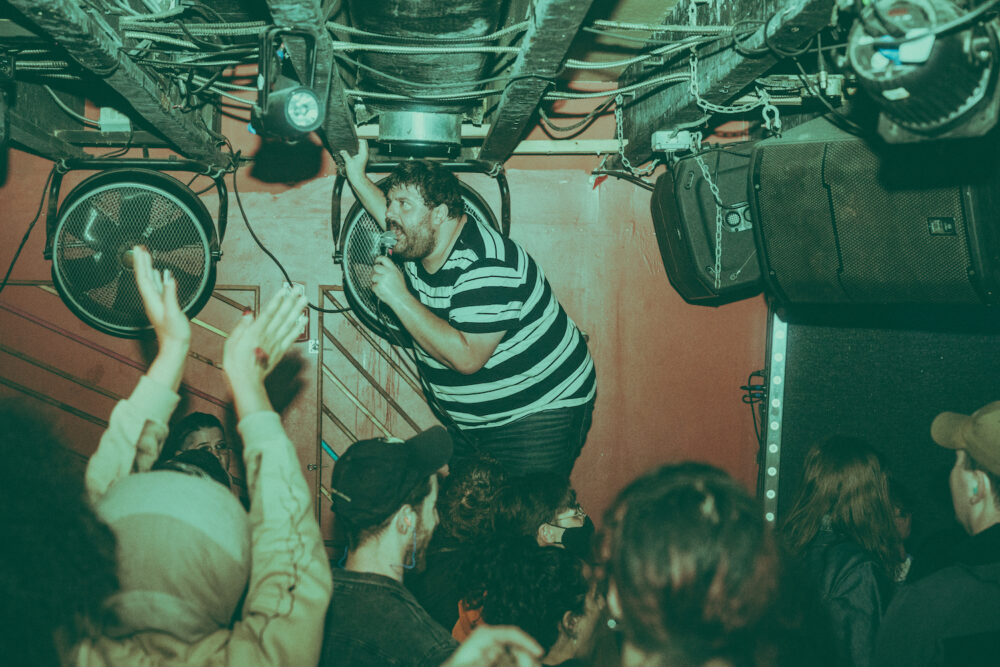
Perennial (Murphy Gerrasch / @bardicroots)
Still, I rallied around the caffeine and adrenaline to go upstairs as New England mod-punks Perrenial were mid-set. The DC9 stage was where a lot of the weekend’s sonic diversity was found. On the roof, the organizers had booked DJ sets to spin until closing, while onstage the kinetic organ-backed power trio wandered through the crowd, vamping on the breakdown on “Uptight” before bursting back into explosive motion with zero loss of energy. In between sets, we got a quick stand-up set from trans masc comedian Charlie Girard before Zora took the stage for a lean set of hooky alt pop, playing with skittering live drums and trippy vocal manipulations. Um, Jennifer? closed out the night with a joyously fun set, striking a perfect balance between their noisy guitar freakouts and their charming pop songs like “Went On T,” delivered with a playful grin from Eli Scarpati.
I thankfully planned a bit better for Saturday’s events. Firstly, I made sure to eat beforehand and bring a few snacks along. Secondly, I saved my energy during the matinee DC local showcase at DC9 and soaked in the easy familial energy of the room. The first thing Holzman mentioned to me when I chatted with her in the weeks ahead of the festival is that the Liberation Weekend is much more than just Ekko. The band and organizers wanted it to be a showcase for the exciting and boundary-pushing potential that queer art represents, and a stage for the voices of DC’s DIY scene. The matinee gave those bands a spotlight amid all of the other bigger acts.
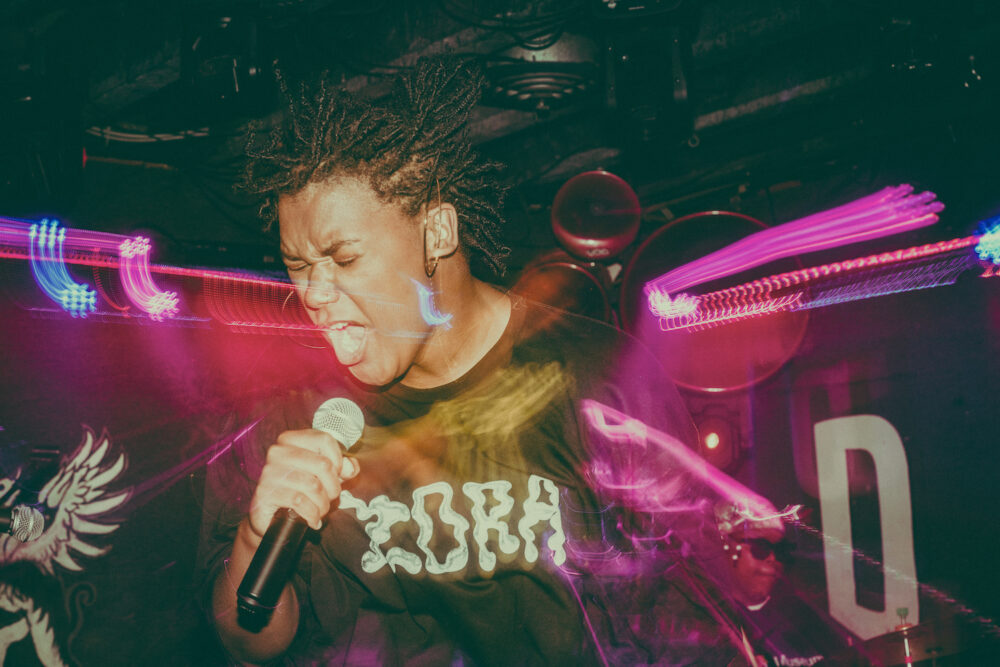
ZORA (Murphy Gerrasch / @bardicroots)
In our conversation, Mel Bleker from Pretty Bitter noted the way the city’s DIY scene grew exponentially in the aftermath of the COVID lockdowns: “I mean, people needed an outlet, you know? But the way that that’s evolved in the past couple of years is really unique and remarkable to me in that there are shared resources…If someone who’s just started a new band and they’re 20 years old and wants to know what emails do I need, how do I do this…you pay it forward.”
Lots of new acts filled the gap, including Pinky Lemon, Massie, Berra, and Ekko’s Miri Tyler, all of whom show up on the local showcase bill. Although all of those artists could be loosely categorized under indie or DIY labels, none of them fit neatly into a single box. Berra showed off twinkling alt-pop melodicism; Massie delivered spiky punk garage fare with a similar vocal tone to Charly Bliss; Tyler’s emotive howl reminded me of Ezra Furman’s Twelve Nudes; and Pinky Lemon stripped their five-person band down to two for a set of mutating electronic shoegaze experiments.
Almost all of the bands I talked to before and during the festival described DC as a particularly fertile ground for Liberation Weekend. Part of this is the contradictions inherent to a city home to one of the most proportionately black, queer, and trans populations in the country and also the rich and powerful who make up the political class. As Tyler put it, “This is always what it’s been about. And not only have I been going to shows and playing shows since I was like 14, 16, I have also been going to actions in DC… since just as young. I remember being like a sophomore in high school, I think I was when I first zip-tied myself to the White House fence. That was to protest the Keystone XL pipeline.”
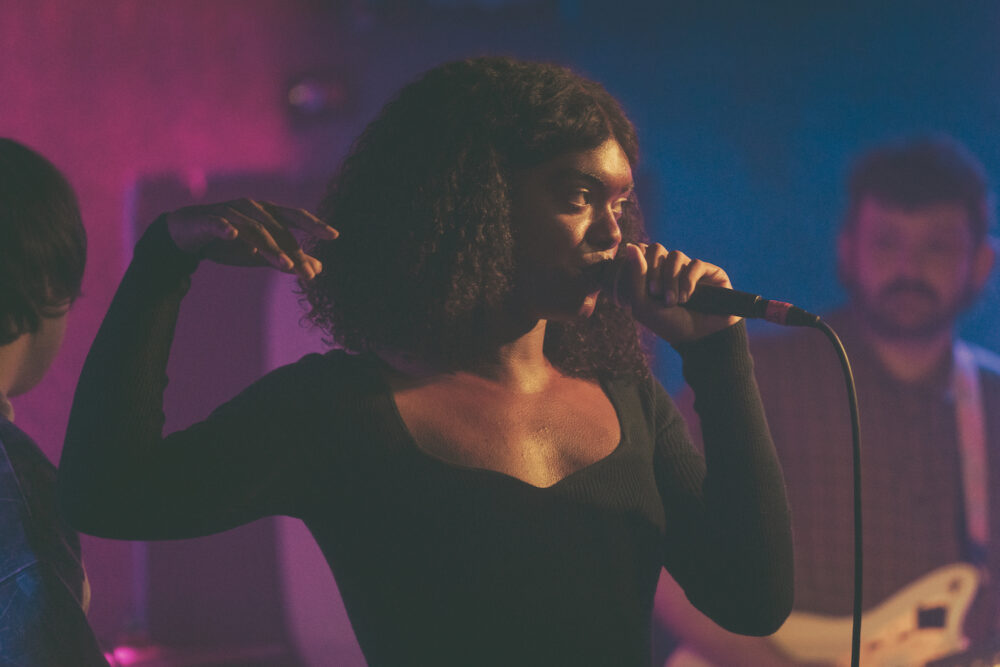
Berra (Murphy Gerrasch / @bardicroots)
For the people who occupy them, DC’s DIY spaces offer a safe haven and also a place of power. Roba Djalleta of Berra talked to me about the importance of these spaces. “Trump pulling federal funding out of the Kennedy Center and taking away all the queerness that has been there for years, like, okay, cool. But you know, Trump can’t go into DC9 and pull his funding. You can’t do that. So it feels really good to like, be queer, be black, and just do my shit.”
Bad Moves and Dim Wizard frontman David Combs also took a moment to speak over the phone about what makes the city special. “I think DC is a really unique music community and has been a city that kind of really focuses on its homegrown scene,” he says. “And the value of that on its own merits, not as just a jumping-off point for national attention or something. The best example of that is just how go-go is such an incredibly localized music genre that most people outside of DC don’t even know what it is, but you can’t walk down the street in DC without hearing it.”
True to Combs’ words, I heard go-go blaring as I rushed towards Black Cat, very aware that I had stayed too long watching Pinky Lemon and was now missing Big Girl, whose new DYE EP is one of my favorites of the year. I came up into the venue just as Kaitlin Pelkey was screaming through the finale of “quit ur job.” As I settled in, the band stormed through the rest of their glammy and theatrical punk jams, getting the whole crowd singing along with the breakdown of “DIY GOD.”
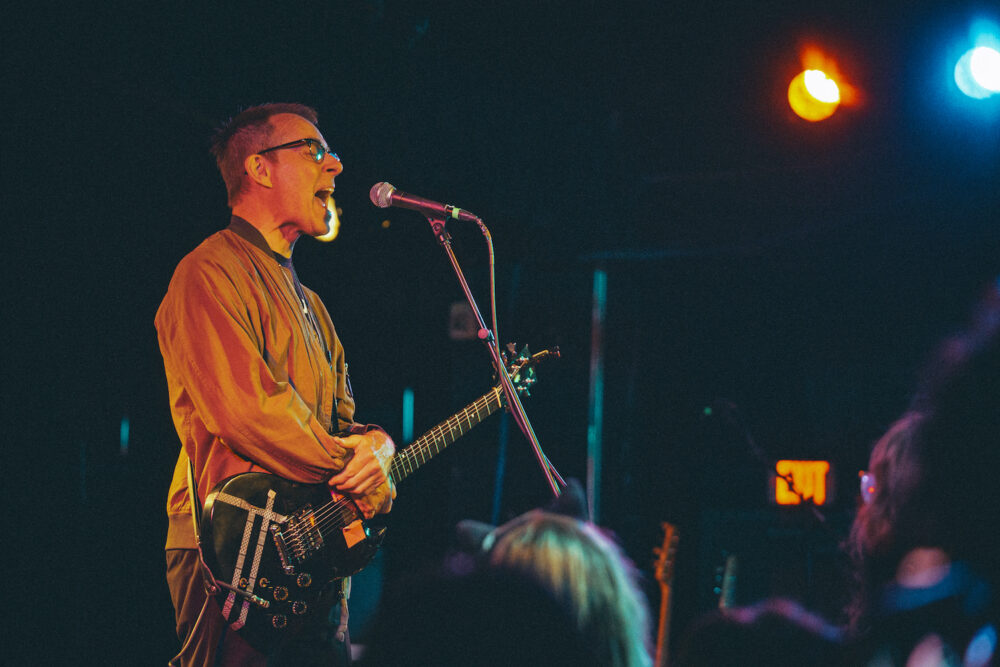
Ted Leo (Murphy Gerrasch / @bardicroots)
Ted Leo’s set was a solo acoustic affair, light on rock pageantry but heavy on plaintive lyricism. He strummed furiously enough to make his single guitar sound like a churning wave on “Bleeding Powers” and “Me And Mia,” but most of his set pulled from deeper cuts on his Bandcamp. Particularly striking was “The Clearing Of The Land,” a narrative song he sang completely a cappella, allowing the searing account of colonialism, displacement, and genocide to hang in the air. It was an indictment that only hit harder amidst all of the cries of “Free Palestine” from the artists onstage over the weekend.
Downtown Boys and Speedy Ortiz followed Leo’s strident and solitary performance with the blunt force trauma of bellowing slash-and-burn punk. Downtown Boys’ Victoria Ruiz was a kinetic, imposing presence on-stage, but also fully able to turn their sets into a party, handing off the mic to crowd members as the squawking sax and guitars blared away. “Somos Chulas (No Somos Pendejas)” had me sweating away in the pit trying to keep up with the band’s relentless energy. In a testament to that same energy, drummer Joey Doubek also pulled double duty, playing with Speedy Ortiz right after Downtown Boys. At this point, Speedy Ortiz are live vets, and that well-rooted chemistry was on full display on Saturday. Sadie Dupuis and Audrey Zee Whitesides’ harmonies carried their hooks to the forefront, while their squalling guitar textures gave songs like “Lucky 88” an added jagged edge.
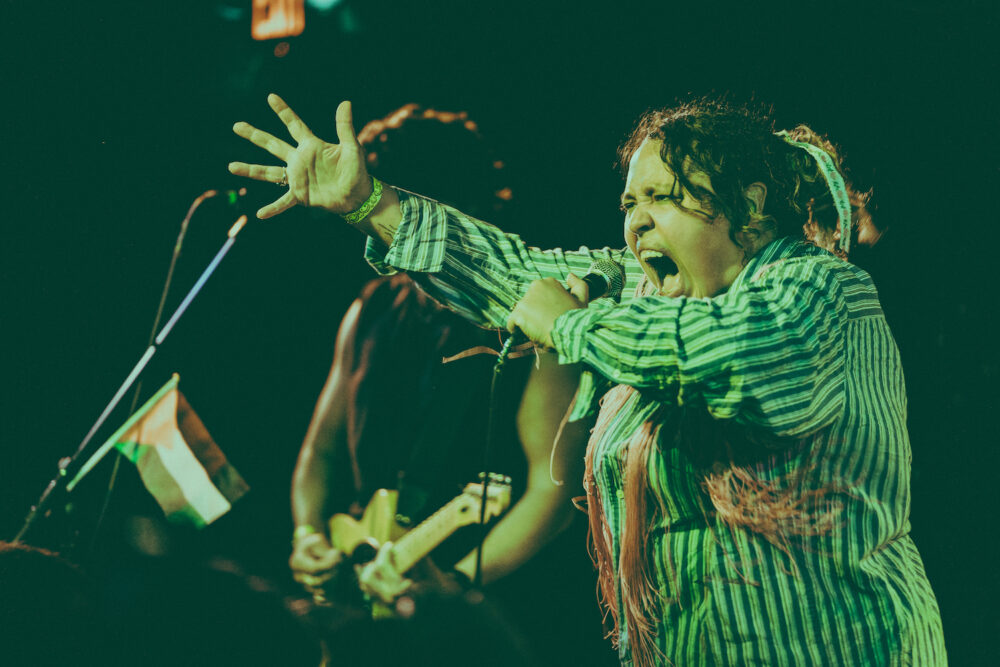
Downtown Boys (Murphy Gerrasch / @bardicroots)
As the night winded on to the TRANSA showcase performances, Bartees Strange took the stage. His solo set relied completely on his dextrous guitar work and vocal talents, and Strange gave his all, wailing out “Sober” and “Mustang” with complete abandon. I couldn’t help but miss the horn lines on “Heavy Heart” or the synths on “Mustang,” but the intimacy of the performance had its own charms. It felt very similar to the first time I saw Bartees live, opening a show at DC’s Songbyrd Music House.
Both Asher White and L’Rain’s sets diverged from their recorded material, with White reimagining her songs for a wild noise rock power trio and L’Rain crafting an ambient drone piece above trans oral history interviews. White was chaotic and messy in the best way. She tumbled through her songs with visible glee, stopping and starting the music again as her band worked out the kinks in the arrangement live. When I asked her after the show what she wanted people to take away from the weekend, White quickly answered, “I think probably that trans girls can fuck up on stage. Because I don’t feel like that is necessarily clear to people.”
“I want to be to trans women as Lena Dunham is to white cis women,” she laughs. “Look, Lena Dunham, you know, she has some issues. I won’t die on the hill of defending Lena Dunham. However, I think of sensationalizing and locating some real empowerment in being awkward and ugly and fallible is really important in any marginalized representation discussion. It’s not just about, like, the numbers or how big these people are being represented, it’s how dimensional.”
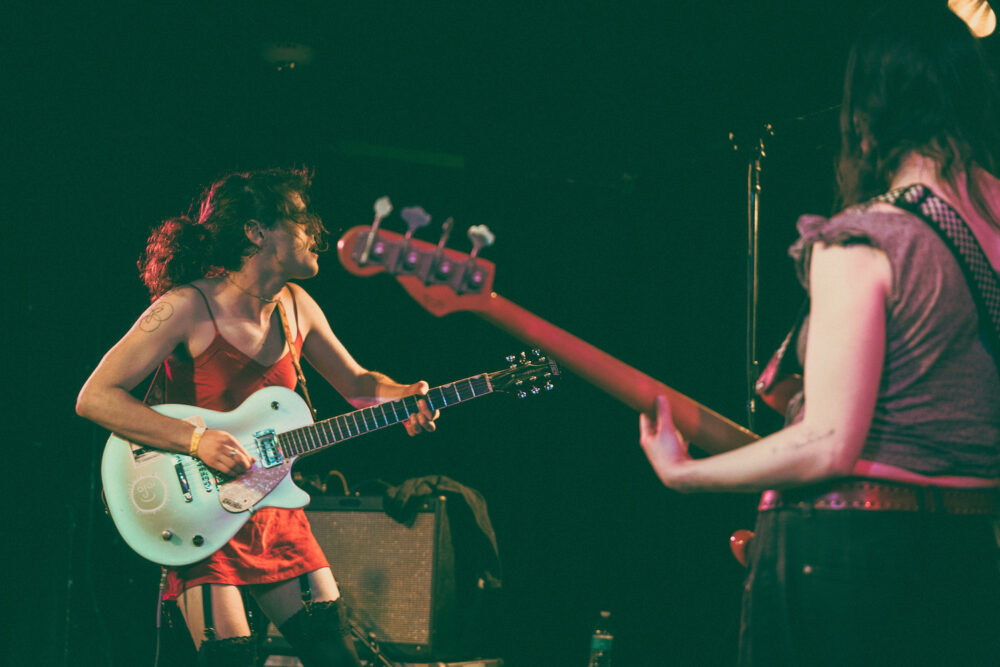
Asher White (Murphy Gerrasch / @bardicroots)
That messy and imperfect dimension is everything I love about punk music and everything I loved during Liberation Weekend. After I fueled up with another Red Bull at DC9, I was treated upstairs to an otherworldly wordless dark wave soundscape from Fairfax band Vaelastrasz, during which they pulled out a sword and began knighting attendees in the crowd. The next band, Brooklyn experimentalists Pure Adult, felt like a hyperactive carnival barker crowing out material from leftist Twitter (“We’re all camgirls in a mass surveillance state”) atop of a careening post punk song. It was an unmitigated blast.
Ekko Astral’s closing set ended the weekend with a karaoke party featuring all their friends. They paid tribute to SOPHIE with a cover of “JUST LIKE WE NEVER SAID GOODBYE.” DC-based activist Sophie Fisher hopped onstage for a rendition of the first song Ekko ever wrote, “TRANSDEMIC BABY.” The band’s production manager, Jo Morgan, screamed out “Helter Skelter.” Members of Latchkey Kids and Home Is Where joined for “Dancing In The Dark” and “Constant Headache.” Roba Djalleta from Berra sang Fleetwood Mac’s “Dreams” with Ted Leo. Kaitlin Pelkey of Big Girl joined for Yeah Yeah Yeahs’ “Maps.” The guest stars and covers kept coming, and the mosh pit kept raging. The band pulled out material from their acclaimed debut Pink Balloons, their QUARTZ EP, and from their upcoming new record. Finally, David Combs and Katie Park from Bad Moves hopped onstage as Ekko gave one last offering to DC with covers of Bad Moves’ “Hallelujah” and “Cool Generator” before closing with a massive sing-along to their own “i90.”
For as much as the weekend was about great music, a thriving DIY scene, and raising funds for a good cause, it is also simply a reminder that the only way we all make it out of this is together. As I trudged aching back to my car, I couldn’t help but recall something from my conversation last week with Agnes Walsh, one of the organizers at Red Hot Org, who helped connect the TRANSA artists with Liberation Weekend.
“The first woman I think I ever truly loved…she had a sticker on her door to her bedroom,” Walsh said. “It was of a trans woman helping a trans man with his T shot. And the caption said, ‘We can do it ourselves.’ And I think I’ve never let go of that mantra for years…I think Jael [Holzman] had a very similar idea…We can’t depend on a country [that] is going to be taking away all of our meaningful healthcare resources, that never cared about us in the first place. But we can do it ourselves. This GLM Liberation Weekend TRANSA event is proof that we can do it ourselves.”
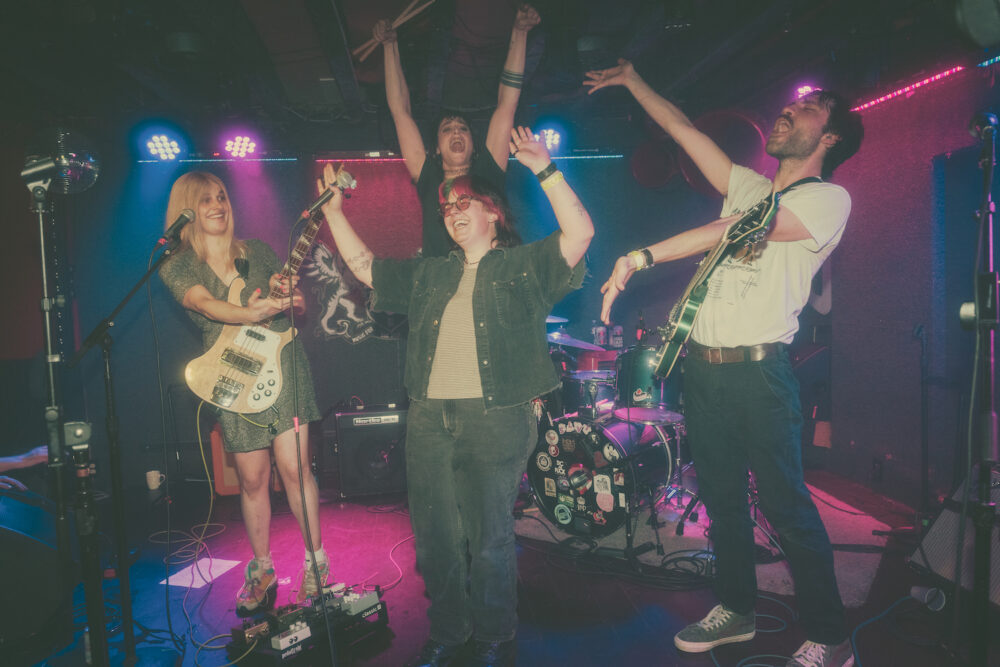
Ekko Astral (Murphy Gerrasch / @bardicroots)
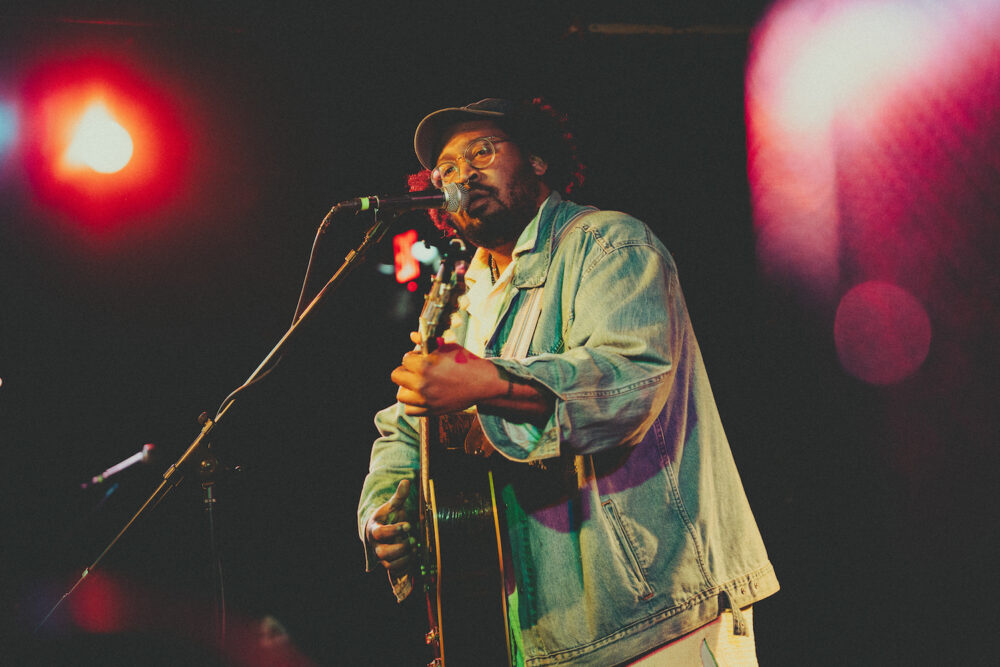
Bartees Strange (Murphy Gerrasch / @bardicroots)
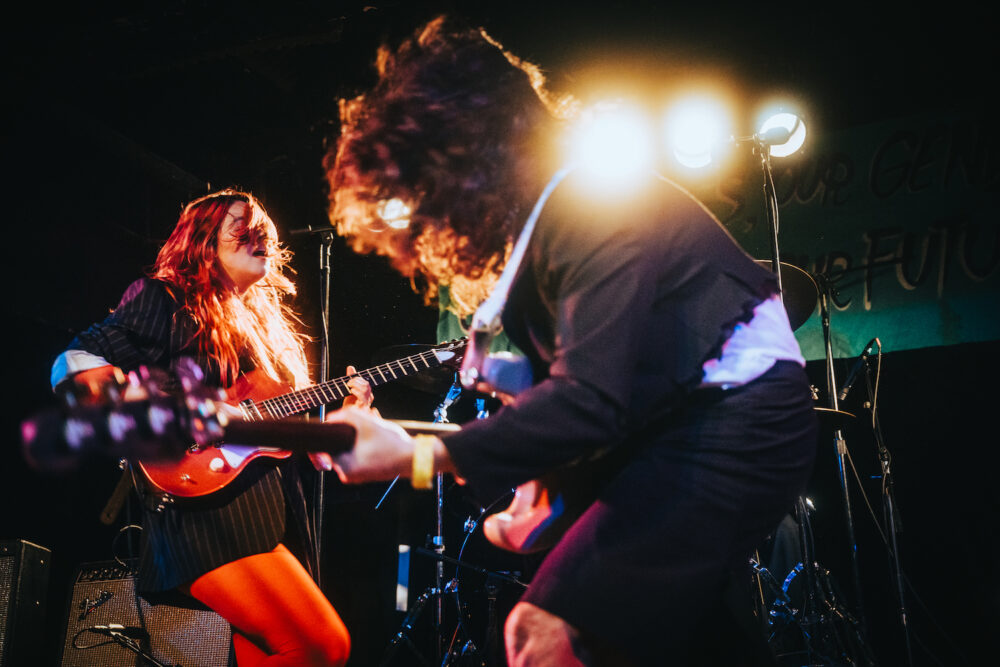
Big Girl (Murphy Gerrasch / @bardicroots)
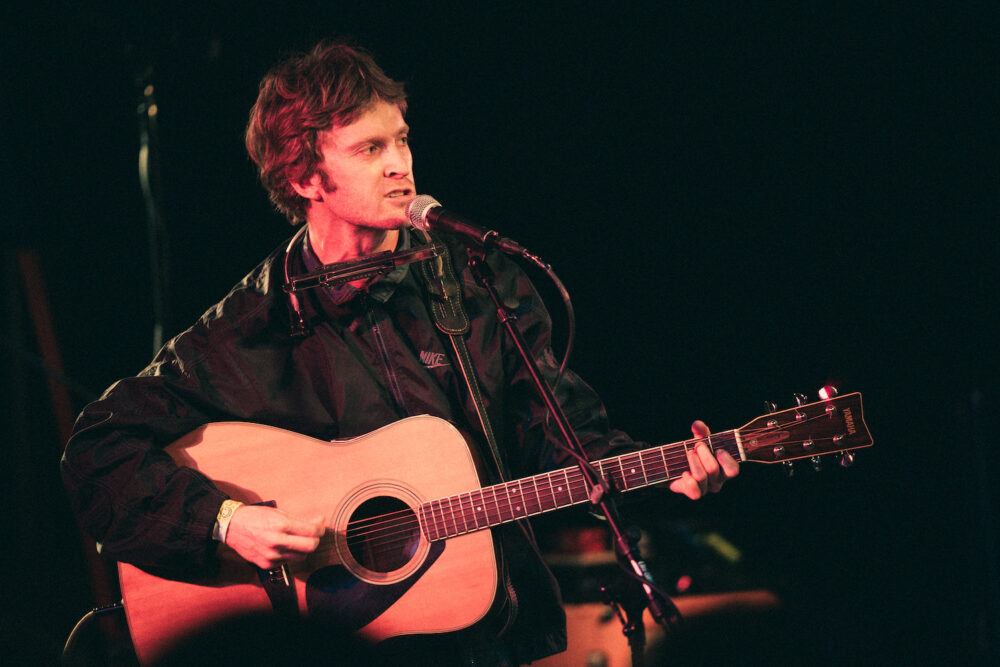
Greg Freeman (Murphy Gerrasch / @bardicroots)
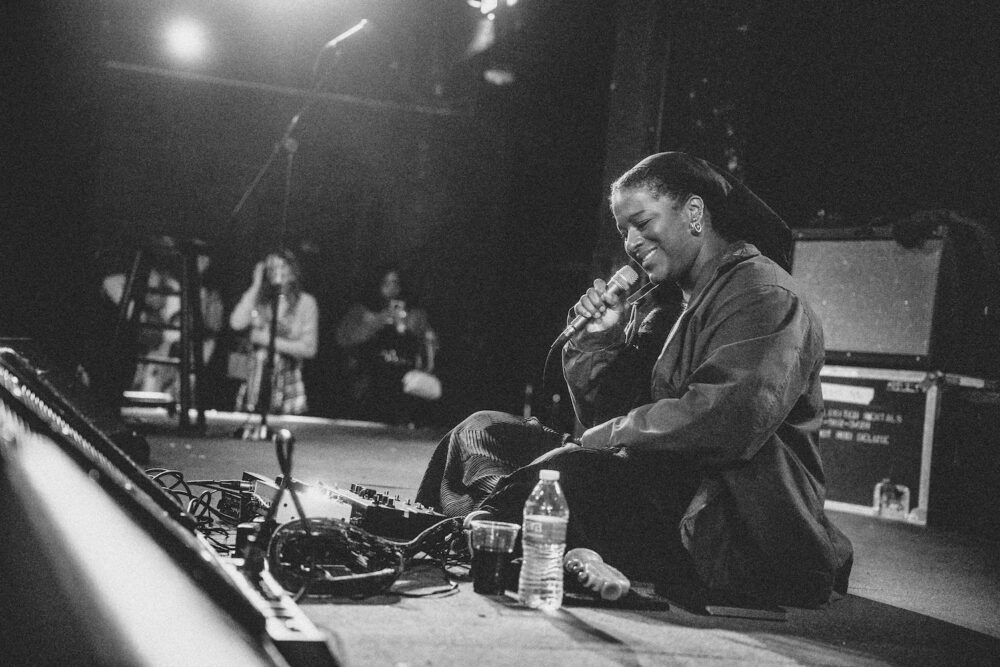
L'Rain (Murphy Gerrasch / @bardicroots)
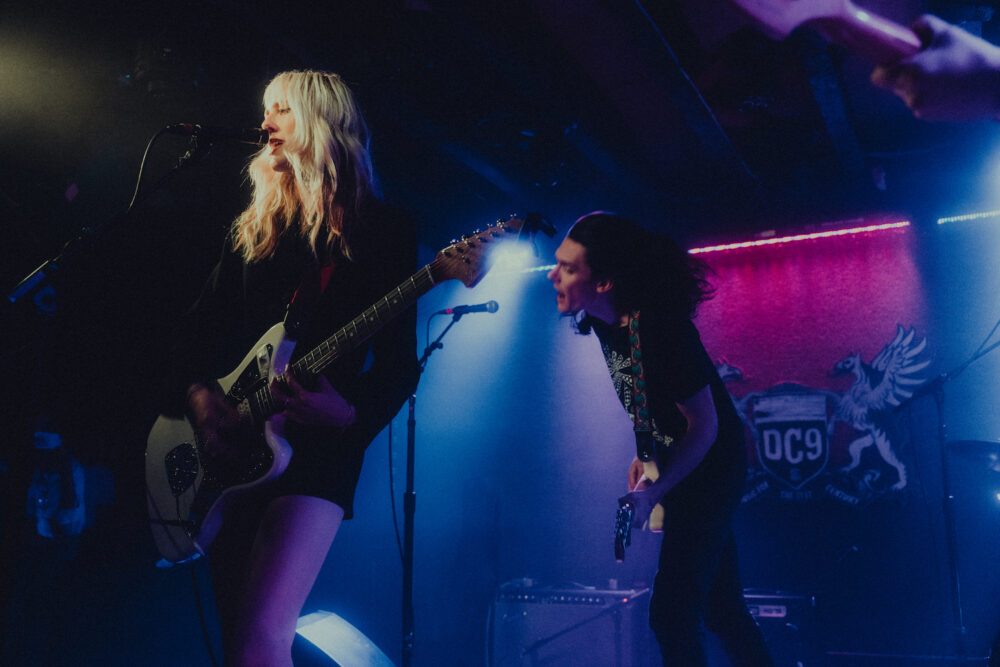
Massie (Murphy Gerrasch / @bardicroots)
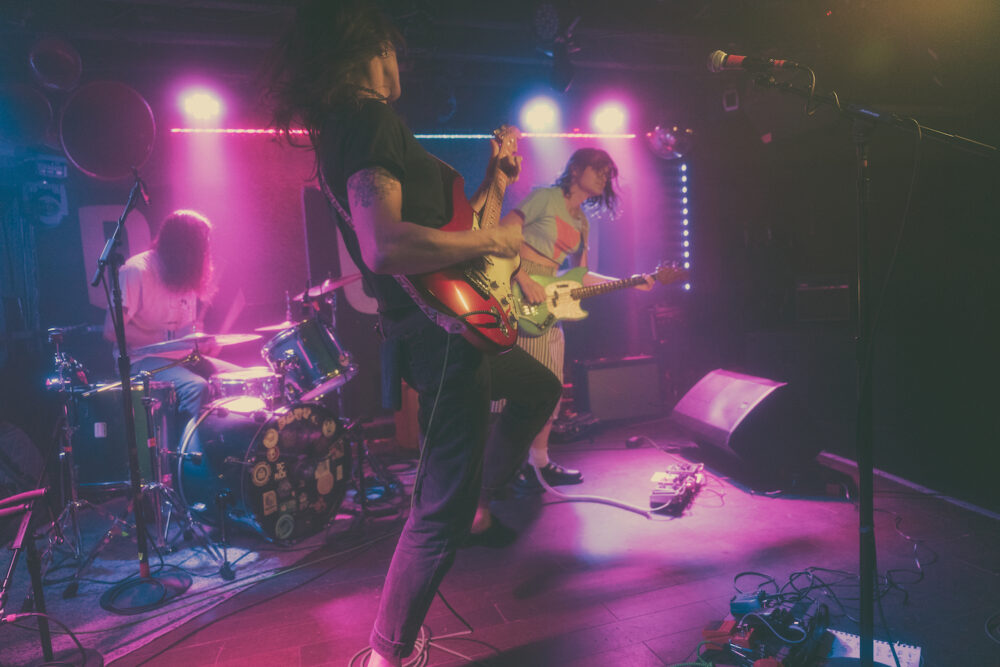
Miri Tyler (Murphy Gerrasch / @bardicroots)
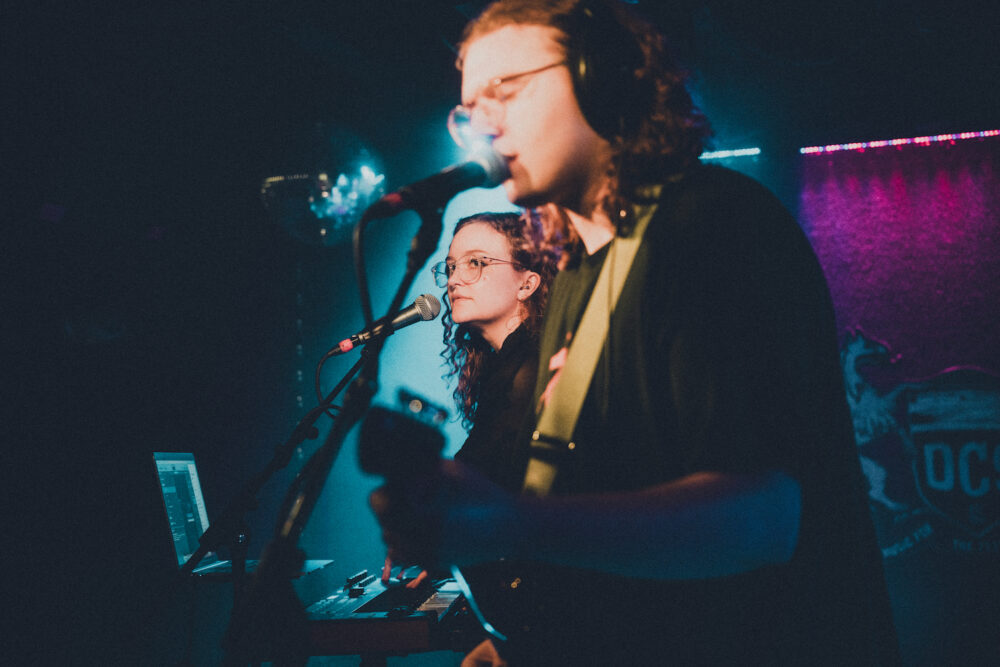
Pinky Lemon (Murphy Gerrasch / @bardicroots)
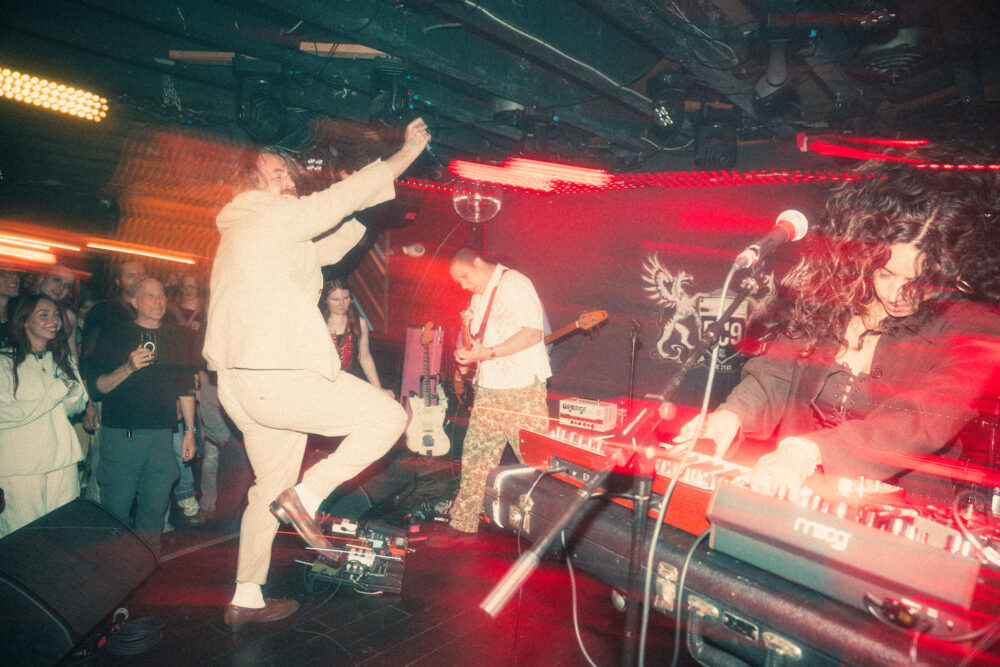
Pure Adult (Murphy Gerrasch / @bardicroots)
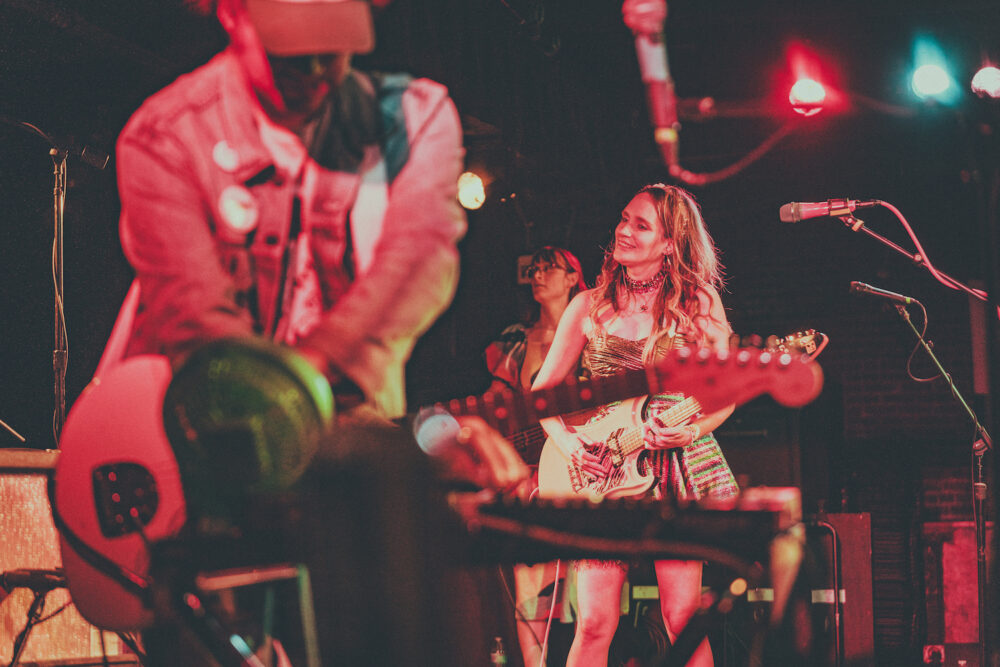
Speedy Ortiz (Murphy Gerrasch / @bardicroots)
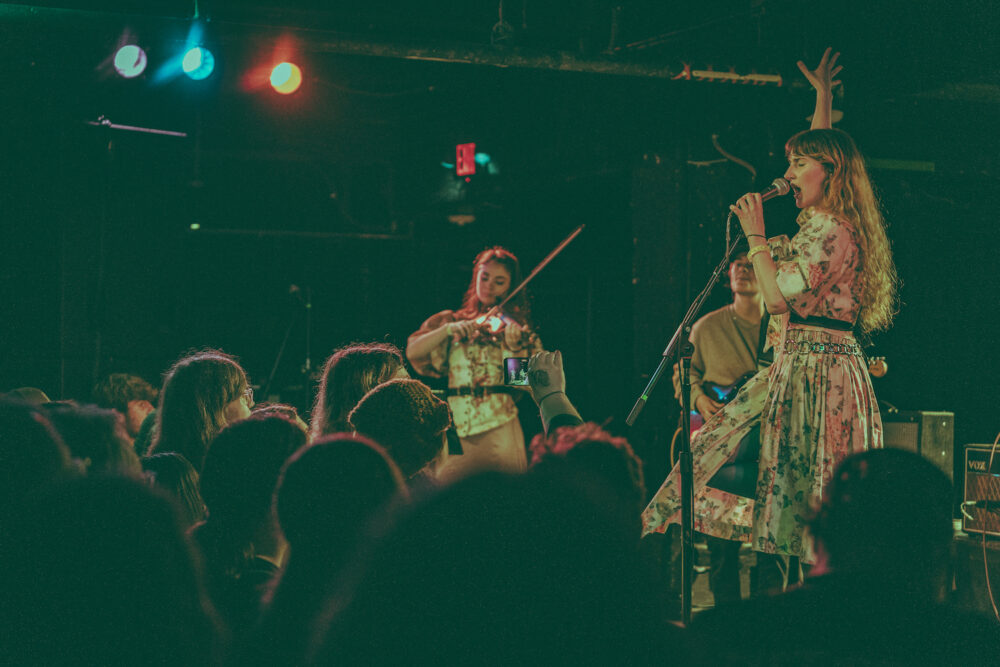
The Ophelias (Murphy Gerrasch / @bardicroots)
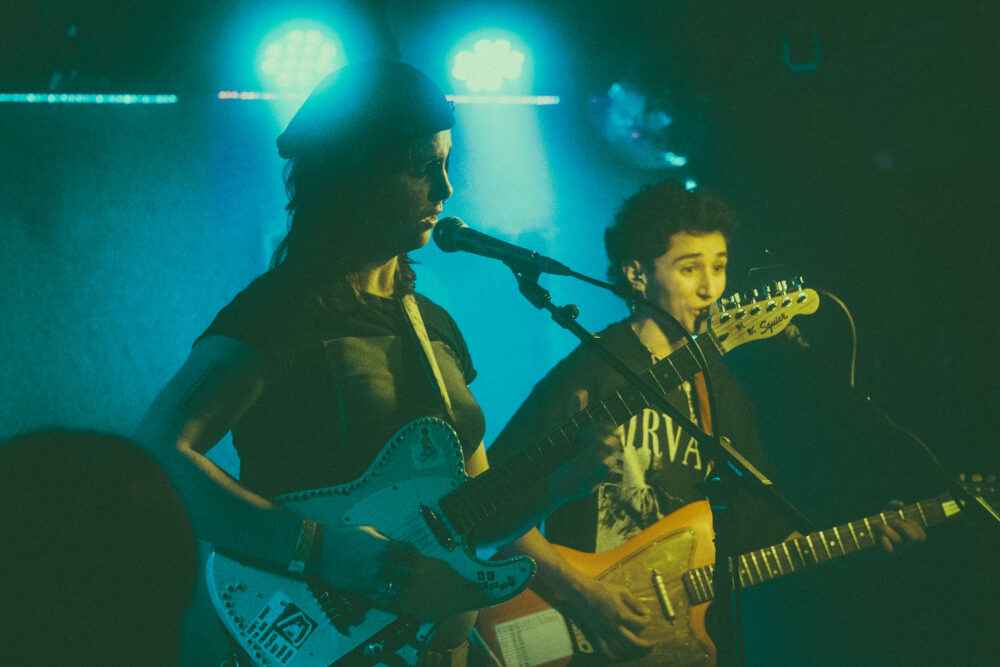
Um, Jennifer? (Murphy Gerrasch / @bardicroots)
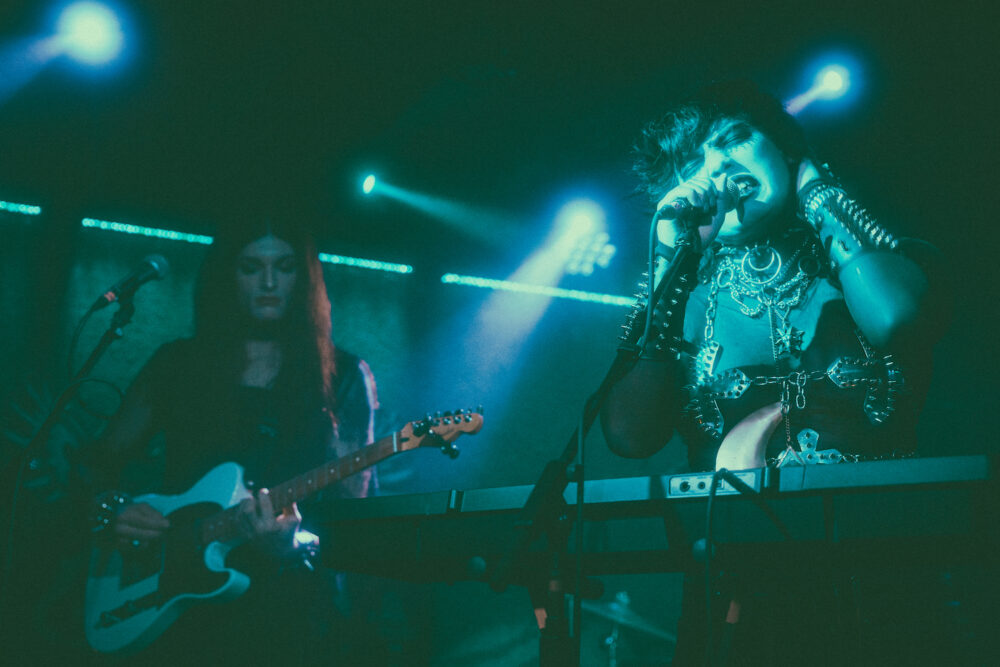
Vaelastrasz (Murphy Gerrasch / @bardicroots)






